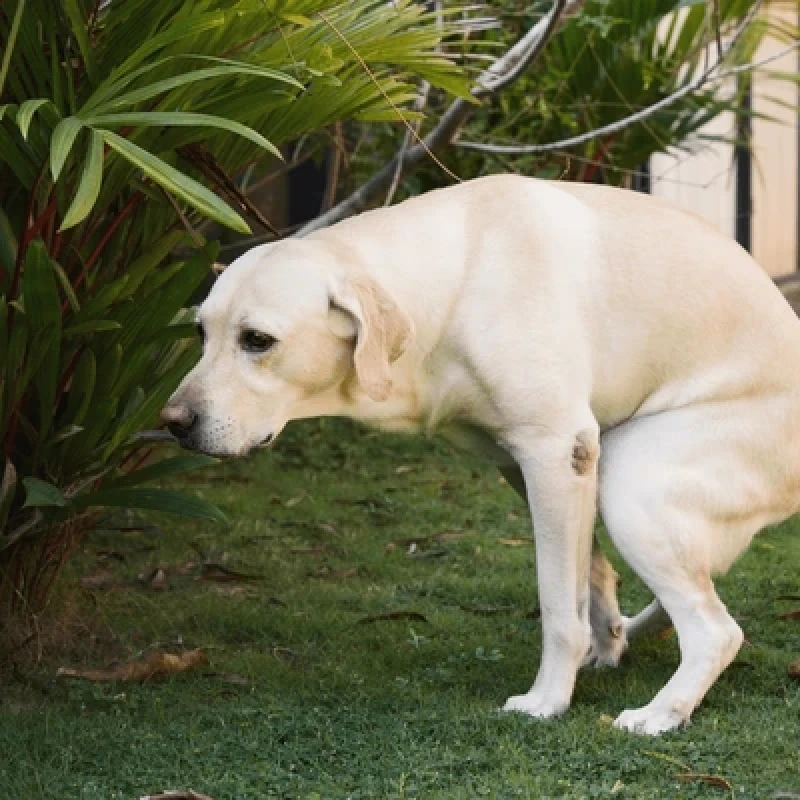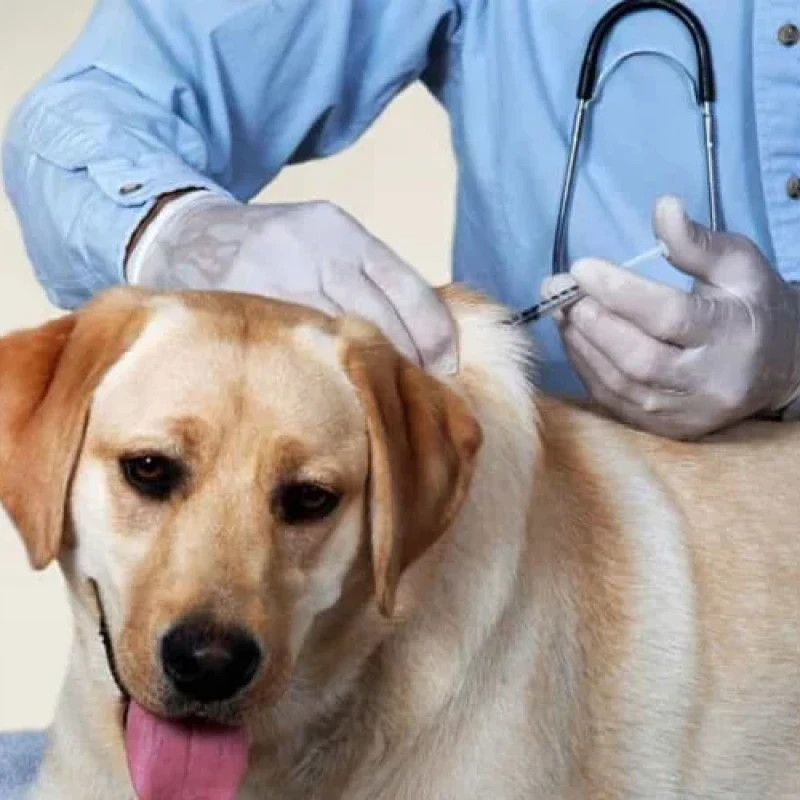Deworming is not only a crucial step in protecting your dog’s health but also reflects the owner’s responsibility. Did you know that worms can affect not just dogs but also pose risks to humans? So how do you choose a safe and effective dewormer? Why do some dogs refuse to take medication? And after deworming, is your dog truly protected? Let’s explore scientific insights and tips for caring for your pet with Pet Mart through the article below.

Common Types of Worms That Parasitize Dogs
Puppies, newborn dogs, and adult dogs can all be infected by various types of parasitic worms. Here are some common types of worms found in dogs:
Roundworms: Also known as dog roundworms, these roundworms typically infest the small intestine of dogs. Puppies often become infected through their mother's milk. Adult roundworms are long and slender, usually white or slightly yellow. They can cause digestive problems in dogs and can be dangerous to humans.
Hookworms: These usually inhabit the small intestine and can cause symptoms like diarrhea, blood loss, and fatigue. Puppies can become infected when exposed to contaminated environments.
Heartworms: These parasites live in the heart and large arteries and are transmitted from mosquitoes to dogs. They cause heartworm disease in dogs, which can lead to death if untreated.
Whipworms: These parasites inhabit the large intestine and can cause symptoms such as diarrhea, particularly bloody diarrhea.
Tapeworms: This category includes both flatworms and segmented worms. They reside in the intestines of dogs and require an intermediate host, such as fleas or crickets, to develop.
Flatworms: These are a type of small segmented worm that is particularly dangerous to humans, as they can cause disease in the liver, lungs, and other organs.
Age for Medication and Deworming Schedule for Dogs
Parasitic worms in dogs are a significant health issue that needs timely intervention. To ensure the best health for your pet, understanding the deworming schedule for puppies and adult dogs is essential.
Importance of Deworming for Dogs: Why is deworming important? Worms are parasites that can harm a dog's health. They can reproduce and spread rapidly, affecting a dog's digestive function and immune system.
Timing of Deworming: Deworming should begin when puppies are 2-3 weeks old, which is the best time to prevent the spread of worm eggs.
Considerations When Deworming: Test for reactions before deworming the entire litter; try it with one puppy to ensure no adverse reactions occur. Coordinate with vaccination schedules, as you need to ensure deworming and vaccinations don’t occur simultaneously.
Deworming Schedule for Puppies
Deworming is recommended for puppies at 3-4 weeks: When the puppy begins to have more environmental exposure and mother's milk decreases, this is an important time for the first deworming. Veterinarians typically recommend deworming puppies at 2, 4, 6, 8, and 12 weeks.
Deworming Schedule for Adult Dogs
How often should adult dogs be dewormed? After one year of age: Once dogs are fully grown and have a stable immune system, they should only be dewormed once a year. Properly timed deworming helps your dog develop strong and healthy. Don’t forget to consult your veterinarian for the most suitable deworming schedule for your pet.
Cost of Deworming Medication for Dogs
Currently, consumers can find various types of deworming medications for dogs at different price points, catering to individual needs and budgets. Each type of dewormer targets different parasites. Depending on the dog's worm infestation situation, you should choose the most suitable medication.
Methods and Procedures for Deworming Dogs
Deworming dogs correctly not only helps protect their health but also minimizes the risk of worms spreading in your living environment. Like humans, dogs also face the risk of parasitic worm invasions that can lead to complications. Always follow expert advice and use medications carefully.
Why Do Dogs Dislike Taking Medicine?
Some dogs may detect the smell and taste of the medication, leading to strong resistance. Particularly, some medications may have a bitter or unpleasant taste. Mixing the medication with food can help, but remember that some clever dogs may be able to detect and avoid the medication. Both dogs and cats often dislike taking medicine for several reasons:
Smell and Taste: Many medications have distinct smells and tastes that dogs and cats dislike. These animals have a very sensitive sense of smell and can detect medication from afar.
Texture: Pills or tablets can be difficult for some dogs and cats to swallow, especially if they are not prepared in a soft or gel form.
Gag Reflex: Some medications placed deep in the throat can stimulate the gag reflex, causing dogs or cats to want to vomit.
Unfamiliarity: Dogs and cats prefer routine and may react negatively to changes in their diet or feeding methods. Medication is a "new" item they are unfamiliar with and may be suspicious of.
Force: If a dog or cat has previously experienced discomfort after taking medication (e.g., vomiting, diarrhea), they may associate taking medication with those negative experiences. If owners forcibly open their mouths and shove the medication in, they may become wary and resistant in the future.
Effective Methods for Deworming Dogs
To make it easier for dogs and cats to take their medicine, here are some methods:
Direct Administration: Place the medication directly into the dog's mouth and hold their mouth closed. Then gently stroke the dog's throat until it swallows the medication.
Mixing with Food: Crush the medication and mix it with the dog’s favorite food. Ensure that the dog finishes all the food containing the medication (e.g., dog/cat treats with a medication slot).
Alternative Forms: You can also use gel or liquid forms of the medication if available. Or use special tools to facilitate giving medication to dogs and cats. Consult a veterinarian about using products that help reduce the smell and taste of the medication.
Dosage of Deworming Medication for Dogs
The dosage of deworming medication for dogs depends on several factors, including the type of medication, the dog's weight, and the dog’s health status. Here are some general guidelines, but it is essential to always consult your veterinarian and follow the instructions on the medication label:
Weight: Many deworming medications base their dosage on the dog’s weight. For example, a small dog will require a different dosage than a large dog.
Type of Worm: Not all deworming medications work against all types of worms. Some medications target only specific types of worms, while others have a broader spectrum of action. You need to accurately identify which worms your dog is infected with to choose the right medication.
Type of Medication: Dewormers can be in pill, liquid, or gel form. Dosage and administration will differ based on the form of the medication.
Frequency: Some deworming medications only need to be administered once, while others require several consecutive days of treatment.
Age of the Dog: Dosage and frequency of deworming may vary between puppies and adult dogs. Some medications are not suitable for puppies or pregnant dogs.
For specific dosage information and instructions for using deworming medication for dogs, always observe your dog after administering the medication to detect any signs of side effects and contact your veterinarian immediately if there are any issues.
Should You Deworm Dogs Before or After Vaccination?
Deworming dogs before vaccination is a practice recommended by many veterinarians. Deworming should ideally be done 1-2 weeks before vaccination. However, you should consult your own veterinarian to make the most suitable decision for your dog. The reasons are:
Better Immune Response: Worms and other parasites can weaken a dog's immune system, making them more susceptible to pathogens. Deworming before vaccination helps improve the dog’s immune response, allowing them to react better to the vaccine.
Better Vaccine Effectiveness: A healthy digestive system unaffected by worms will allow dogs to better absorb and respond to vaccines.
Avoid Side Effects: If a dog is infested with worms and vaccinated at the same time, they may have adverse reactions to the vaccine, causing side effects.
Easier Health Monitoring: Deworming before vaccination allows you to more easily monitor any changes in your dog’s health after the vaccination, without worrying whether symptoms are due to worms or the vaccine.
Should You Deworm Dogs Before or After Eating?
Deworming should be performed after the dog has eaten, about 1-2 hours after a meal. Here are the reasons:
Reduce Stomach Irritation: When the stomach contains food, the deworming medication will not irritate the stomach lining directly, reducing the risk of irritation or vomiting.
Better Effectiveness: Deworming medications work more effectively when food is present, enhancing their effectiveness against worms.
Avoid Vomiting the Medication: When dogs have food in their stomach, they are less likely to vomit. This allows the deworming medication to remain in the stomach and intestines and work effectively.
Reduce Stress: Some dogs may feel anxious or uncomfortable when taking medication on an empty stomach. Feeding them before deworming helps alleviate this discomfort.
Can You Bathe Dogs Immediately After Deworming?
After deworming dogs, you should avoid bathing them immediately. However, if there is a specific reason you feel the need to bathe them after deworming (e.g., the dog is dirty or smells), consult your veterinarian before making a decision.
Avoid Disturbing the Dog: Taking deworming medication may cause discomfort or fatigue. Bathing them immediately afterward may add to their distress.
Monitor for Side Effects: After deworming, keep the dog in a quiet environment and observe them for a few hours for any signs of side effects, such as vomiting or diarrhea. Bathing them immediately may hinder this observation and pose various risks.
Recommended Waiting Period: It’s best to wait at least 24-48 hours
Can I bathe my dog after deworming?
After deworming your dog, you should avoid bathing them immediately. However, if there’s a specific reason you feel the need to bathe your dog after deworming (for example, if the dog is dirty or smells), consult your veterinarian before making a decision.
- Avoid disturbing your dog: Taking deworming medication can make dogs feel uncomfortable or lethargic. Bathing them right after deworming may add to their discomfort.
- Monitor for side effects: After deworming, keep your dog in a calm environment and observe them for a few hours to detect any signs of side effects, such as vomiting or diarrhea. Bathing them immediately could hinder your ability to observe these symptoms and increase risks.
- Recommended waiting time: It is advisable to wait at least 24-48 hours after deworming before bathing your dog. This allows enough time for the medication to work effectively and for your dog to recover from the deworming process.
Symptoms after deworming a puppy
For many pet owners, deworming their dogs is a familiar task. However, this process can also cause some unwanted reactions. To ensure the safety of your pet, follow your veterinarian's instructions and always monitor your dog after deworming. The following content will help you understand these reactions better:
- No reaction: This is the ideal situation. If your dog shows no symptoms after deworming, it indicates that the medication has been well absorbed and your dog’s stomach is functioning effectively. To ensure optimal effectiveness, avoid feeding your dog for two hours after administering the medication.
- Lethargy, discomfort: Some dogs may become lethargic and tired after deworming. Symptoms such as mild vomiting and diarrhea may also occur. In this case, let your dog rest and monitor them. Provide clean water, and if the situation stabilizes after about half a day, you can resume normal feeding.
- Excessive vomiting: In some cases, dogs may vomit excessively after deworming. This is especially common in dogs with sensitive stomachs or older dogs. If your dog vomits excessively, ensure they stay hydrated, and if the condition does not improve within 24 hours, take them to the veterinarian.
Frequently asked questions about deworming dogs
Can I give my dog human deworming medication?
You should not give your dog deworming medication intended for humans. While some medications may contain similar active ingredients, the dosages, concentrations, and balance of other components may not be suitable for dogs. Human deworming medications such as Fugacar, Zentel, Combantrin, Detoxic, Alzental, Vidocal, etc., often contain albendazole or mebendazole. Although some of these substances can be used in dogs, the dosages and treatment methods may differ. Here are a few reasons:
- Different dosages: Medications for humans and dogs often differ. A safe dose for humans may be dangerous for dogs.
- Different absorption: Dogs absorb and process medications differently from humans, leading to the risk of side effects.
- Risk factors: Using inappropriate medications can cause serious side effects in dogs, including diarrhea, vomiting, and even more severe complications.
- Different treatment goals: Some types of worms in dogs may not be effectively treated with human medications.
Can I use alcohol to deworm my dog?
Using alcohol to deworm dogs is neither a safe nor effective method. Here are a few reasons:
- Toxic to dogs: Alcohol, especially in large amounts, can be toxic to dogs. They do not process alcohol like humans, and even a small amount can cause severe symptoms such as vomiting, increased heart rate, difficulty breathing, decreased body temperature, seizures, and even death.
- Ineffective: There is no scientific evidence to prove that using alcohol can effectively deworm dogs. Alcohol can irritate and damage the stomach lining of dogs, leading to vomiting, diarrhea, and other digestive symptoms.
Can I use herbal remedies to deworm my dog?
In folk medicine, some types of leaves and natural herbs are believed to help deworm animals, including dogs. However, these should not replace scientifically validated deworming methods. It’s essential to note that not all folk remedies are proven to be effective. Some commonly used natural herbs include:
- Garlic: Garlic is thought to have worm-killing properties due to its allicin content. However, garlic can also be toxic to dogs if consumed in large amounts.
- Coconut and coconut oil: Both are believed to help eliminate worms. Dried coconut is often used as a food to combat parasites.
- Dandelion leaves: Some information suggests that dandelion leaves and roots may help expel worms.
- Beetroot: It is believed to help push worms out of the stomach and intestines.
- Wormwood: This plant contains compounds that help kill worms but can also be toxic to dogs if overdosed.
Do clean dogs with no symptoms need deworming?
One common mistake many pet owners make is believing their dog is free from worms. Even if a dog does not go outside much or only eats clean food, it is important to recognize that worms and parasites can enter a dog’s body in various ways. Why is deworming puppies necessary?
- Prevention is key: Just like vaccinations, deworming is an essential preventive measure. There is no need to wait until you see symptoms; regular deworming helps prevent the growth of parasites.
- Stool does not reflect everything: Not finding worms in stool does not mean your dog is free from parasites. Parasites may be in different developmental stages and have not yet matured into adult worms.
- Cleanliness does not equate to deworming: While bathing your dog helps remove many bacteria and parasites on the skin and fur, it cannot eliminate all worms and parasites within the dog’s body.













